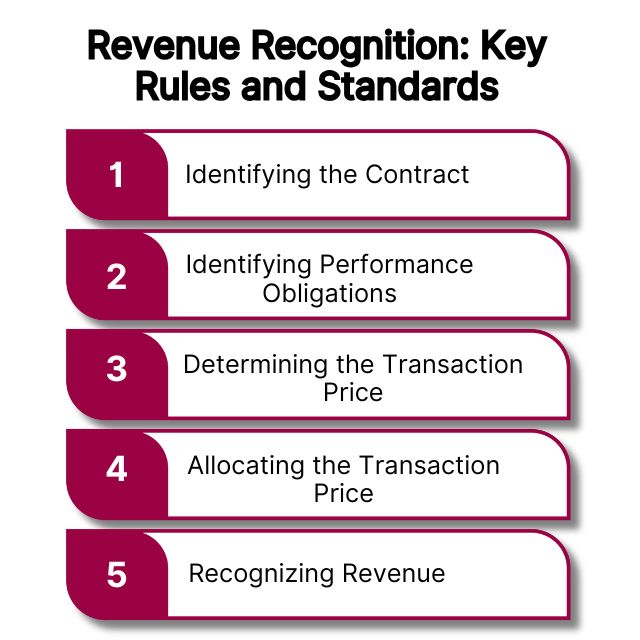Introduction
Contract modifications are one of the most complex and high-risk areas in revenue recognition under IFRS 15. Businesses frequently alter contract terms due to customer demands, pricing changes, scope adjustments, or economic conditions. These modifications can have a significant impact on financial reporting and, if not handled properly, can lead to misstatements, fraud risks, or non-compliance. Thus, review of contract modifications and IFRS 15 becomes a crucial activity within audit universe or audit activity.
For internal auditors, ensuring that contract modifications are correctly assessed and reported is a critical part of revenue auditing. Unlike traditional contract accounting, where revenue was often recognized based on historical practices, IFRS 15 requires auditors to determine whether a contract modification creates a new contract or modifies an existing one. This assessment directly affects when and how revenue is recognized.
Why is Auditing Contract Modifications Important?
- Contract modifications frequently alter revenue recognition timing and amounts, creating risks of premature or delayed revenue recognition.
- IFRS 15 outlines specific criteria for determining whether a modification should be treated as a new contract or adjusted within an existing contract.
- Failing to correctly account for modifications can lead to regulatory scrutiny, misstated financials, and potential legal risks.
This article provides internal auditors with a practical approach to auditing contract modifications, price adjustments, and revenue allocation under IFRS 15.
Understanding IFRS 15’s Approach to Contract Modifications
What is a Contract Modification?
A contract modification is a change to an agreement that alters the scope, price, or both. This can happen due to:
- Addition or removal of goods/services
- Changes in contract duration
- Price adjustments, discounts, or penalties
- Customer-requested changes to deliverables
- Renewals or extensions with modified terms
Under IFRS 15, contract modifications are treated in three ways:
A Separate Contract
If the modification adds distinct new goods or services at their standalone selling price, it is treated as a separate contract.
Let us understand this situation with an example, A software company signs a 12-month subscription contract with a client for CRM software at $10,000 per month. After six months, the client decides to purchase an additional data analytics tool that integrates with the CRM software. The new tool is sold at $5,000 per month, and the price is the same as what other customers would pay for it separately. Since this new service is distinct from the original CRM software and is priced at its standalone selling price, this modification is treated as a separate contract.
How Internal Auditors Should Verify This:
- Ensure the new service is not interdependent with the original contract.
- Verify that the company does not adjust revenue from the original contract due to the new addition.
- Check that revenue from the new tool is separately accounted for over its contract term.
A Termination of the Old Contract and the Creation of a New One
If the modification affects distinct goods/services that haven’t been delivered yet, the old contract is terminated, and a new contract is created.
For Example, A construction company signs a two-year contract to build an office complex for $5 million. After eight months, the client decides to expand the project to include a parking structure but reduces the office building’s specifications to fit within a $7 million revised budget. Since the original office building project is being modified and the scope is significantly changed, IFRS 15 treats this as a new contract replacing the old one.
How Internal Auditors Should Verify This:
- Assess whether the modification significantly alters the contract deliverables.
- Ensure revenue from the original contract is not recognized for canceled work.
- Validate whether the new contract revenue is recognized separately from the old contract.
A Continuation of the Existing Contract
If the modification does not add distinct goods or services, the modification is adjusted within the existing contract.
Internal auditors must determine which category applies and validate revenue adjustments accordingly.
For Example, A telecom company offers a 24-month mobile subscription for $80 per month. After 12 months, the customer requests a contract extension for an additional 12 months at a discounted rate of $70 per month. Since the original mobile plan remains unchanged, and the extension is not a distinct new service, IFRS 15 treats this as a modification to the existing contract.
How Internal Auditors Should Verify This:
- Check that the company adjusts revenue recognition to reflect the new pricing over the remaining contract duration.
- Ensure the contract is not inappropriately split into two separate agreements.
- Verify that the discount does not lead to early revenue recognition beyond the service provided.
Key Audit Challenges in Contract Modifications and Revenue Recognition
1. Identifying When a Contract Modification Has Occurred
One of the major challenges is determining when a contract modification officially takes effect. Some businesses informally change contract terms via emails, verbal agreements, or customer negotiations, making it difficult to track these modifications.
Audit Considerations:
- Ensure that contract modifications are formally documented and approved by all parties.
- Review contract amendments and compare them with initial agreements to detect revenue adjustments.
- Assess whether performance obligations have changed, impacting the timing of revenue recognition.
Example:
A SaaS company initially signs a three-year software contract for $500,000. After 12 months, the customer negotiates an extension for two more years at a reduced rate. The internal auditor should verify:
- Whether this should be treated as a new contract or as a modification to the original agreement.
- If revenue recognition for the remaining period needs adjustment or reallocation.
- Whether discounts have been applied correctly under IFRS 15’s transaction price allocation rules.
2. Determining Whether a Modification is a Separate Contract or an Adjustment
Many contract modifications involve adding goods or services, but not all additions qualify as separate contracts. If new goods/services are distinct and sold at market price, they should be treated separately; otherwise, they must be integrated into the existing contract.
Audit Considerations:
- Check if added goods/services are standalone items or interdependent with the existing contract.
- Validate whether businesses correctly allocate transaction prices when bundling new services.
- Ensure revenue is not prematurely recognized for modifications that should be treated as adjustments.
Example:
A telecommunications company sells a mobile subscription with a free phone for a 24-month contract. Later, the customer adds an extra data package at a discount. The auditor should determine:
- Whether the extra data plan should be treated separately or as a modification of the original contract.
- If the price adjustment is properly allocated between services.
- If revenue recognition aligns with the updated performance obligations.
3. Auditing Price Adjustments in Contract Modifications
Pricing changes can arise due to:
- Customer negotiations
- Bulk purchase discounts
- Early termination penalties
- Performance-based pricing adjustments
Audit Considerations:
- Review contract modifications to determine if price changes apply retrospectively or prospectively.
- Assess whether businesses recognize variable consideration correctly under IFRS 15.
- Ensure that price reductions or incentives do not manipulate revenue recognition timing.
Example:
A software company sells a five-year license for $1 million. After two years, the customer renegotiates the price down to $800,000 due to economic factors. Auditors should:
- Determine if the price reduction requires adjustment to past revenue recognition.
- Validate if the company improperly deferred or accelerated revenue.
- Check if the contract meets IFRS 15’s conditions for price adjustments.
4. Allocating Transaction Price in Bundled Contract Modifications
Many contracts include bundled products/services. A contract modification often changes how revenue is allocated among those elements.
Audit Considerations:
- Verify whether modifications require reallocation of revenue under IFRS 15.
- Ensure revenue for each performance obligation is correctly allocated after modification.
- Identify whether changes impact the timing of revenue recognition.
Example:
An online education platform sells a one-year subscription for pre-recorded courses and live tutoring sessions. Six months later, the customer upgrades to include one-on-one mentorship.
The internal auditor must assess:
- If the upgrade should be treated as a new contract or a contract modification.
- How to reallocate transaction price between existing and new services.
- Whether the revenue from the original services needs retrospective adjustment.
5. Evaluating the Impact of Contract Cancellations and Terminations
Contract modifications often include early terminations, which affect revenue adjustments.
Audit Considerations:
- Verify if contract cancellations require revenue reversals or liability adjustments.
- Ensure that penalties for early termination are recorded correctly.
- Assess whether revenue should be recognized over a revised period after cancellation.
Example:
A construction company signs a three-year contract for a major project. Due to unforeseen circumstances, the client cancels the project after one year.
Auditors must ensure:
- Previously recognized revenue is adjusted for uncompleted work.
- Termination penalties are recorded properly as liabilities.
- The company does not continue recognizing revenue beyond contract termination.
Best Practices for Internal Auditors Auditing Contract Modifications
- Establish Strong Internal Controls for Contract Approvals
- Require formal documentation for all contract modifications.
- Use Data Analytics to Track Revenue Adjustments
- Identify trends in contract modifications and price adjustments.
- Conduct Sample-Based Contract Testing
- Review random contract samples to detect revenue misstatements.
- Verify Compliance with IFRS 15’s Disclosure Requirements
- Ensure financial reports clearly disclose the impact of modifications.
References
- IFRS Foundation. “IFRS 15: Revenue from Contracts with Customers.” IFRS.org
- Deloitte. “Contract Modifications under IFRS 15.” Deloitte Insights
- PwC. “Revenue Recognition Audit Challenges.” PwC









